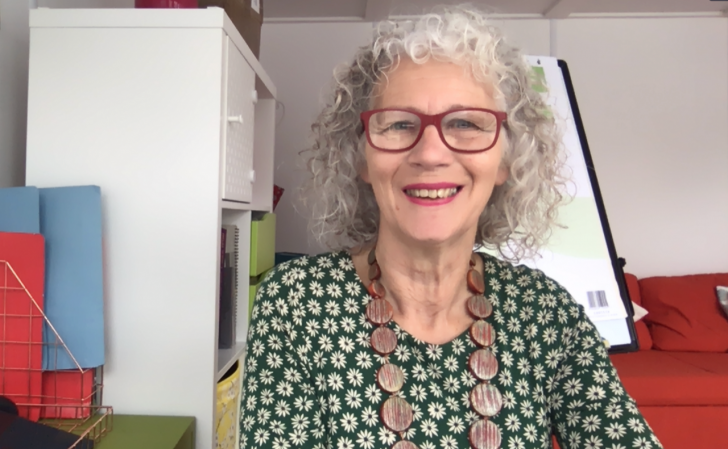
Meet the Therapist: Jan Baker
Jan Baker is a therapist in North Lincolnshire and online
What attracted you to become a therapist?
I originally trained and worked as a community nurse and realised I had become more interested in the mind than the body. I have since acknowledged how closely the two are linked. After having some therapy for myself and being fascinated by the process, I decided to eventually pursue this as my career.
Where did you train?
My training was in two halves. I qualified as a counsellor in 1996 following five years of training with CPCAB at a local college in my home town of Rugby.
Over 20 years later I completed my training as a transactional analyst psychotherapist at the Metanoia Institute in London. I now have a private practice in North Lincolnshire, where I offer psychotherapy, counselling, supervision and training.
Can you tell us about the type of therapy you practise?
I have been passionate about transactional analysis, (TA) ever since I was given a book on it by a friend many years ago. TA really speaks to people and offers so many opportunities to apply it to all areas of life including therapy, relationships, organisations and education.
I aim to practice TA from a relational approach, which means facilitating client’s capacity for self-actualisation, healing and change, enabling them to recognise and change archaic, self-limiting patterns – dealing with the pain of the past in the present so that they can be freer in the future.
TA is a humanistic philosophy, focussing on each individual’s potential and personal development. We fundamentally believe that people are innately good and that mental and social problems result from deviations from this natural tendency.
How does transactional analysis help?
TA offers ways to explore, clarify and understand emotional, psychological and behavioural problems and experiences and how they develop, with the aim of helping people to access their own ability to make positive changes.
What sort of people do you usually see?
I work with adults, individuals, couples and groups. I see self and GP referrals and also do some work with Employees Assistance and insurance companies.
Some of the varied issues people bring include abuse – both historical and current – anxiety, depression, life changes and relationship difficulties.
I have a particular interest in working with clients and supervisees who have dyslexia and recently completed and published a research study called: ‘An Inquiry Into the Experience of the Dyslexic Transactional Analysis Psychotherapist.’
What do you like about being a therapist?
I never cease to consider what a privilege it is to be asked to share people’s journey towards their goals.
What is less pleasant?
There are positives and negatives in all lines of work. Intuitively I tend to get a sense of something that is not comfortable for me and I gain from exploring this in supervision or personal therapy. I also think it’s important to consider that sometimes it is just enough to have a good old moan to family or friends (maintaining confidentiality of my work of course).
How long you’ve been with welldoing.org and what you think of us?
I’m not good at remembering dates – the time goes so fast. I think I’ve been with welldoing.org since 2016. I really like the accessibility of the website and the ‘personal’ contact if I have a query or problem. I don’t use the booking system as being dyslexic it doesn’t fit my needs when organising my caseload, although I may give it a try in the future.
Do you ever suggest books or apps to clients?
This depends on the way clients like to work. I may share books or articles I find useful to explain a particular aspect of their therapy or that they may find interesting.
The last one I suggested was Staring at the Sun: Overcoming the Terror of Death by Irvin D. Yalom.
What you do for your own mental health?
I love spending time in my garden, I keep chickens, and enjoy walking in the many woodland areas near my home and spending precious time with family and friends.
You are a therapist in North Lincolnshire (and online). What can you share with us about seeing clients in that area?
I have a mixed client base with clients coming from the industrial town of Scunthorpe, market town of Brigg, Grimsby, Lincoln and all the rural surrounding villages.
Working online too has expanded my practice area further, with a recent client from South East Asia.
What’s your consultation room like?
I see clients in a small garden room which has a separate side entrance and adjacent outside toilet so I can keep work and home separate. I am currently working online and will resume some face-to-face work soon hopefully.
What do you wish people knew about therapy?
One of my favourite quotes is from Socrates; ‘An unexamined life is not worth living’ I would like people to know it’s never too late to explore your potential for growth and change.
What did you learn about yourself in therapy?
Too much to talk about here as I’m still learning. Basically that I am OK as a person and that I can always be my authentic self without fear.











